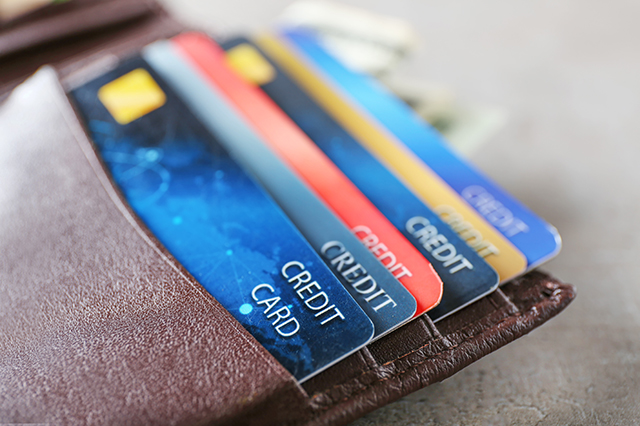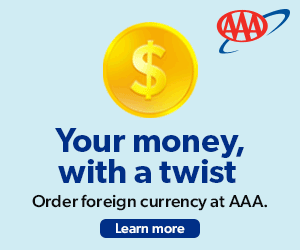Credit cards are powerful tools — allowing you to earn serious rewards, track expenses and improve your credit score, but there’s also a dark side. Credit cards make it incredibly easy to spend beyond your means. Overspending and high interest rates will quickly deepen your debt, sending your financial security into a tailspin.
Is credit card debt creating stress and anxiety in your life? Here are some simple tips to help you manage debt without giving up your credit cards.
Choosing the Right Credit Card
The first step toward proper credit care is choosing your cards wisely.
With thousands to choose from, it may seem daunting to find a card that suits your needs. To narrow down your choices, start by figuring out which type of credit card will fit your lifestyle, spending habits and financial situation.
- Rewards Cards – From airline miles and gas rebates, to gift cards and cash back, rewards cards compete for your business by offering incentives to spend more with your credit card. Rewards cards can be a good fit if you travel a lot or are loyal to a specific brand. The downside? Rewards cards generally come with a high interest rate, which means they are only worthwhile if you pay off your balance each month.
- Low-Interest Cards – Low interest cards are usually reserved for people with excellent or very good credit. If you fall into this category, congratulations! These cards are great for everyday use and are also useful for large purchases because you can pay them off slowly without a huge financial penalty.
- Balance Transfer Cards – These credit cards work by allowing you to transfer balances from high interest credit cards to one with a lower rate. Often this will be an introductory rate as low as 0 percent that goes up after six months or a year. This is a great option for consumers who are struggling to make payments on high-interest cards.

Wiping Out Credit Card Debt for Good
For better or worse, credit cards give you the ability to spend more than you make each month. When you fail to pay the balance on your card in a timely manner, the debt can quickly snowball, increasing your balance and your monthly payment until it becomes hard to manage. To rein in debt, you will have to be disciplined about your spending habits while paying down your balance. Here are some simple ways to eliminate that credit card debt for good.
- Don’t Use Your Cards – The quickest way to keep your monthly payments from increasing is to stop using your cards. Switch to cash or a debit card for most items and save your credit card for emergencies.
- Pay More Than The Minimum Balance Each Month – Your credit card’s monthly minimum payment is just a small percentage of your total balance. Paying the minimum will do little to reduce your balance, as interest will continue to accrue. Try to pay at least double your minimum balance each month.
- Pay Off Your High Interest Cards First – Cards with the highest interest rates are costing you the most money. Use any extra cash to pay down these credit cards first. Pay just the minimum on your other cards, then work your way through each of your credit cards in turn, from the highest rate to the lowest.
Building Credit Responsibly
Good credit is important for anyone who wants to buy a house, start a business or take out a loan. Here are a few tips to help you build and maintain good credit.
- Keep Tabs on Your Credit Score – Your credit report is a summary of your borrowing and repayment history. This information is the basis of your credit score. A higher credit score will entitle you to lower interest rates, while a lower score will make it tougher to get loans and make large purchases on credit. Get your free credit score from AnnualCreditReport.com.
- Keep Your Accounts Open – Once you pay off credit card debt, you may be tempted to close your accounts, but this is not always a wise decision. Your credit score is partly based on your credit utilization ratio, which measures how much credit you’ve used compared to what you have available. Keep those accounts open for a more favorable credit utilization ratio and a better credit score.
- Pay Your Bills On Time – Did you know that delinquent payments can have a negative impact on your credit score? Create a schedule for paying bills on time or set up monthly reminders on your phone.
Credit cards are easy to get and even easier to use, but excessive credit card debt can impact your credit score, your financial stability and your well being.
Are you taking time to minimize your debt and build healthy credit? What methods work best for you? Let us know in the comments section below.
To learn about all the financial services that AAA offers, visit AAA.com/Financial.
One Thought on “Simple Ways to Avoid Credit Card Debt”
Leave A Comment
Comments are subject to moderation and may or may not be published at the editor’s discretion. Only comments that are relevant to the article and add value to the Your AAA community will be considered. Comments may be edited for clarity and length.















Well timed information.thank you very much.